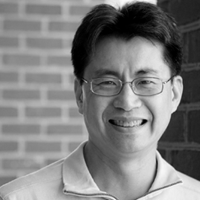Interest | Robert Tai
“When we start looking at engaging we’re trying to engage kids and developing their interests, what I want to do is I think it’s important to see not just a topic that the kids want to get involved – because I think there’s just too much of an array there –in but to look at the kinds of activities that they like to do.”

2018 Interview Highlights:
What is your working definition of interest?
I see it as specific topics in science. I actually have avoided using the term “interest” in my work; I use the term preference. In my research, I’ve chosen to look at the kinds of activities that kids like to do. Do they like figuring things out? Do they like making things? Do they like working with other kids, or would they rather work by themselves? What I found is that the interests of young people can be a bit more plastic than that of older people. When you’re young, there are things that grab your attention, and there are things that you like to do, and sometimes those two come together and overlap. You spend more time on the things that overlap. So when we’re trying to engage kids and develop their interests, I think it’s important to see not just a topic that the kids want to get involved in but to look at the kinds of activities they like to do. We should look at how we can develop or incorporate different ways of putting those activities into the teaching and learning of different science topics. That way, it draws the kids in.
So how do you measure or assess interest in your work, and are there any trade-offs in your approach?
I don’t specifically look at interest. I specifically look at the kinds of activities that people like to do. I have an instrument that I’ve been developing over the past several years and that we’ve used with different organizations. It’s being used right now with organizations that engage children through different activities and programs. The instrument that I developed is actually a survey that asks kids what kinds of activities they like and don’t like to do. It measures how they feel about seven different categories of types of learning activities: collaboration, competition, caretaking, creating/making, discovering, teaching/tutoring, and performing.
How do you see identity, motivation, or attitudes connecting with interest, and how do you distinguish science interest from these other concepts?
It’s an excellent question and to some degree I fear it, because there are so many potential landmines in discussing this. What I mean by landmines is disagreements about how to interpret these things. For example, interest and identity are associated with this notion that somehow who you see yourself as is going to spark what you want to do in the world. We clearly see this happen for many, many people. But it always leaves me wondering whether that outcome is true to the individual or is that person looking for a way of belonging to a larger group, and taking on that identity as a way of connecting to the larger group. The topic of identity is very messy for me.
Motivation and attitudes are very, very broad as well. There are whole books written on how these ideas and concepts overlap. How motivation and attitudes overlap with interest, is broadly understood. Personally, I believe that all these different topics are really important to understanding how they connect with science or how they overlap with science learning.
What advice would you give practitioners who are trying to integrate your findings about interest into their work?
Ideally, what we’d like to see, as educators, is all students liking to engage in all the types of learning activities that we put out there. What I’ve learned from my own teaching is that that’s not the case. It’s not even close. You get different types of attitudes, motivations, and interests in kids, and it’s important to understand who they are as individuals. In many ways, the work I’m doing is asking students before we teach them how they like to learn.
Is there anything else about interest and science learning that you want to share that we didn’t cover?
We’re seeing right now a backlash against scientific anything in a lot of different areas. People who don’t believe and don’t use scientific information and actually actively ignore it are in positions of power. I think engaging in broad science or STEM education for the public—making it accessible, making it interesting, making it something that they want to be a part of and feel they can participate in—is really critical to the work we do in the end.